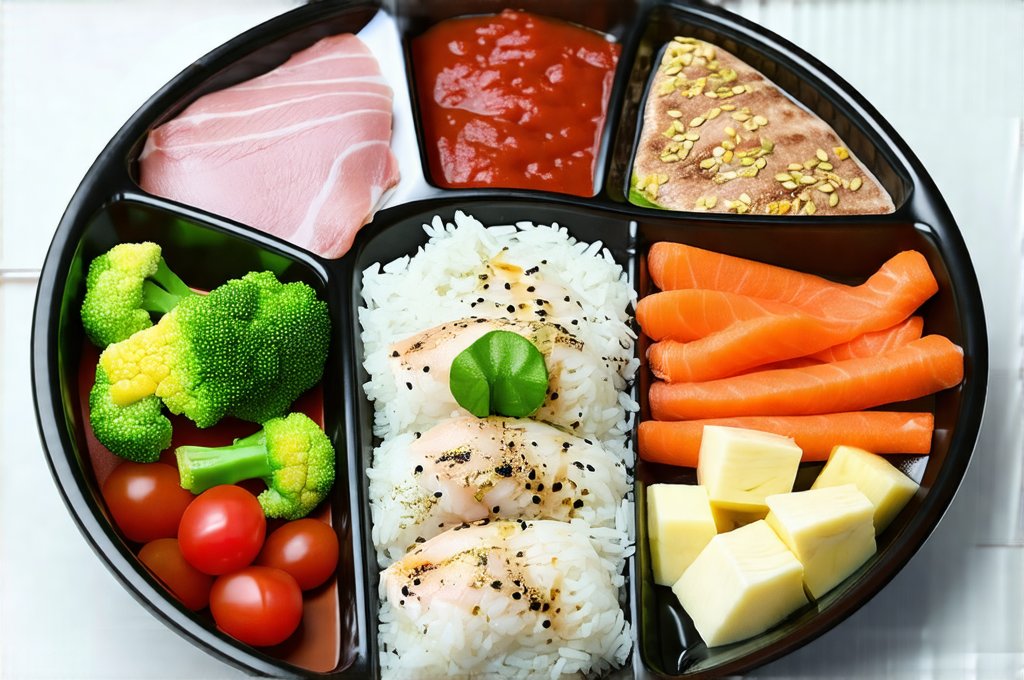The rise of home workouts has fundamentally changed how many people approach fitness. No longer tethered to gym memberships or class schedules, individuals are increasingly seeking effective ways to build strength, improve endurance, and maintain overall wellness within the comfort of their own homes. However, a successful workout regime isn’t solely about effort; it’s intimately linked with proper nutrition. Many fall into the trap of focusing intensely on exercise while neglecting the crucial role that diet plays in fueling performance, aiding recovery, and maximizing results. A haphazard approach to eating can severely limit progress, leaving individuals feeling fatigued, discouraged, and ultimately unable to sustain their fitness journey.
This is where a strategically designed meal plan becomes indispensable. It’s not about restrictive dieting or deprivation; rather, it’s about providing your body with the optimal nutrients it needs to thrive alongside your home workout routine. A well-crafted plan considers timing – when you eat relative to your workouts – macronutrient balance (proteins, carbohydrates, and fats), and micronutrient density (vitamins and minerals). It’s about creating a sustainable system that supports your fitness goals without sacrificing enjoyment or leaving you feeling constantly hungry. Understanding how to pair nutrition with exercise is the key to unlocking lasting health and wellbeing, transforming home workouts from mere activity into a powerful lifestyle change. If you struggle with restrictive diets, consider this meal plan templates to support gut regularity.
Fueling Your Workouts: Macronutrient Focus
The foundation of any effective meal plan lies in understanding macronutrients. These are the building blocks of your diet – protein, carbohydrates, and fats – each playing a distinct role in supporting physical activity. Protein is essential for muscle repair and growth; carbohydrates provide the primary fuel source for workouts; and healthy fats support hormone production, nutrient absorption, and overall health. The ideal ratio will vary based on individual factors like workout intensity, body composition goals, and personal preferences, but there are some general guidelines to follow. For someone engaging in regular home workouts, aiming for a macronutrient split of approximately 40% carbohydrates, 30% protein, and 30% fats is a solid starting point.
Carbohydrates often receive a bad reputation, but they are vital for providing the energy needed to power through your workouts. Complex carbohydrates – found in whole grains, fruits, and vegetables – should be prioritized over simple sugars. These provide sustained energy release, preventing spikes and crashes that can impact performance. Protein intake should be distributed throughout the day, with a particular emphasis on consuming protein within an hour after exercise to maximize muscle recovery. Healthy fats are crucial for overall health and hormone balance; sources like avocados, nuts, seeds, and olive oil should form part of your daily diet.
It’s important to remember that these are just guidelines. Someone focusing heavily on strength training might benefit from slightly higher protein intake, while someone prioritizing endurance activities may require a greater proportion of carbohydrates. Experimentation and listening to your body are key to finding the macronutrient balance that works best for you. Tracking your food intake (even for a short period) can provide valuable insights into your current eating habits and help you identify areas for improvement. For those wanting to build muscle, a building muscle meal plan at home with no gym can be very effective.
Pre-Workout Nutrition: Setting the Stage
What you eat before a workout significantly impacts your energy levels, performance, and even how well you recover. The goal of pre-workout nutrition is to provide sustained energy without causing digestive discomfort during exercise. Generally, consuming a meal containing carbohydrates and a moderate amount of protein 1-3 hours before your workout is ideal.
- If you have more time (2-3 hours), opt for a larger meal like oatmeal with berries and a scoop of protein powder or whole-wheat toast with avocado and eggs.
- For shorter windows (30-60 minutes), choose easily digestible carbohydrates like a banana, a small bowl of yogurt with fruit, or a handful of almonds.
- Avoid high-fat foods before exercise as they can slow digestion and lead to bloating or discomfort. Hydration is also crucial; drink plenty of water before, during, and after your workout.
Intra-Workout Nutrition: Sustaining Energy Levels
For workouts lasting longer than 60-90 minutes, intra-workout nutrition – what you consume during exercise – can be beneficial. This isn’t necessary for all home workouts, but it can help maintain energy levels and prevent fatigue during more intense or prolonged sessions. Simple carbohydrates are the focus here, as they’re quickly absorbed and provide readily available fuel.
- Options include a sports drink with electrolytes, a small piece of fruit (like a banana), or a carbohydrate gel.
- Staying hydrated is paramount; sip water throughout your workout.
- Avoid consuming large amounts of food during exercise, as this can cause digestive upset. The key is to provide a small, easily digestible source of energy to sustain performance.
Post-Workout Recovery: Replenishing and Repairing
The period immediately following a workout is crucial for recovery and adaptation. Your body needs to replenish glycogen stores (energy reserves) and repair muscle tissue damaged during exercise. Within 30-60 minutes after your workout, focus on consuming both carbohydrates and protein. This combination helps kickstart the recovery process and optimize muscle growth.
- A shake containing whey protein and a banana is a quick and convenient option.
- Alternatively, enjoy a meal like grilled chicken with sweet potatoes and vegetables or Greek yogurt with berries and granola.
- Protein intake post-workout should be around 20-30 grams to effectively stimulate muscle protein synthesis. Hydration remains important; continue drinking water to replace fluids lost during exercise. Prioritizing post-workout nutrition is arguably as important as the workout itself, setting the stage for improved performance and faster recovery in subsequent sessions. It’s also a great time to think about how warming spices can help with digestion, especially if you’ve been experiencing any gut issues.




